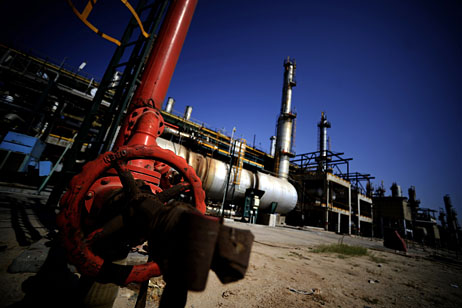
(Filippo Monteforte/AFP Photo)
Libya will start shipping oil to Egypt next month on soft credit terms worth $1.2bn, two Libyan oil industry officials told Reuters.
The officials told the agency that the deal will be made on interest-free credit for a year.
Libya plans to ship one to two cargoes a month for refining in Egypt under a deal that involves 12 million barrels of crude over 12 months, the officials said.
Egypt has not bought any crude on the open market since January due to dwindling foreign currency reserves.
“Their situation is very bad, and if necessary they can take up to a year to pay for each delivery,” said one of the Libyan officials.
“If you are a good neighbour and something is wrong with your neighbour, you will not feel comfortable with yourself. It’s human nature,” he said, implying that Libya will help Egypt in its struggle to meet fuel needs.
Libya deposited a $2bn loan package two weeks ago at the Central Bank of Egypt, while Qatar has promised to grant Egypt an additional $3bn of aid along with natural gas.
One of the officials said that “shipments will be sold at world prices”.
President Mohamed Morsi has raised prices for subsidised energy to reduce the burden on the country’s huge budget deficit.
Morsi’s decision sparked uproar across the country, as several companies have shut down or are operating at below normal production levels due to high prices and fuel shortages.
The deal comes at a time when Egypt is struggling with dwindling foreign currency reserves and the falling value of the Egyptian pound against the US dollar.
Most international companies have reduced their oil supplies to the country over fears that Egypt will struggle to pay for supplies.




